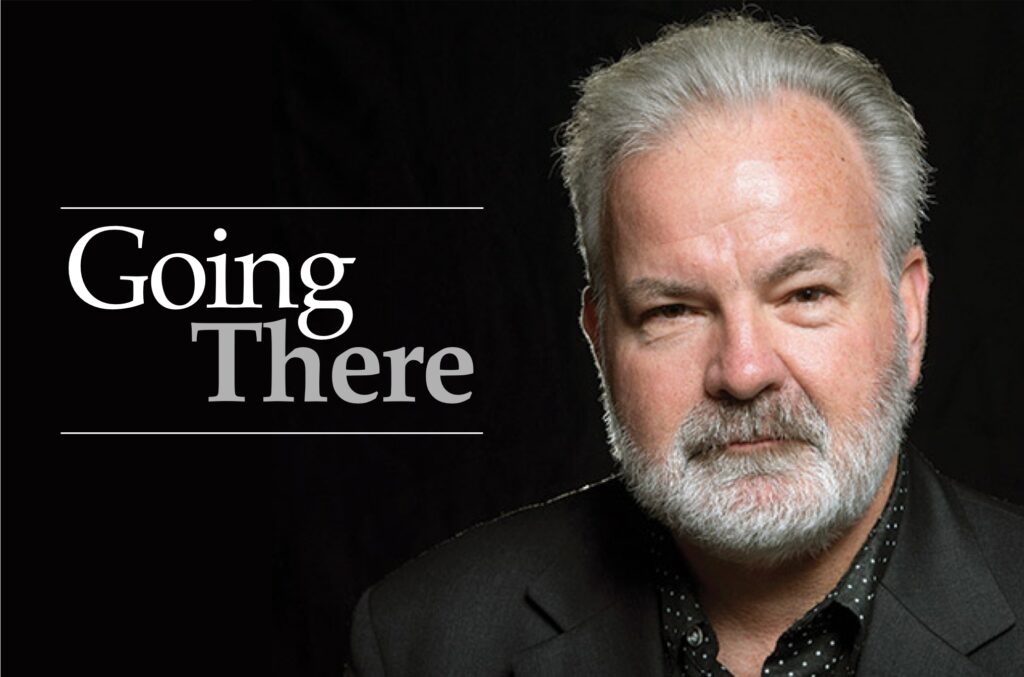Ornstein says there’s no one cause for dysfunctional government
“I’ve been studying Washington politics and Congress for more than 40 years,” said Norman Ornstein, the nationally known congressional scholar and commentator on American politics before an attentive crowd at the Claremont United Church of Christ last Sunday evening, “and never have I seen them this dysfunctional.”
Ornstein, a resident scholar with the conservative American Enterprise Institute in Washington, DC, was the fourth lecturer in a new lecture series, Agenda for a Prophetic Faith, sponsored by Progressive Christians Uniting (PCU), a group of socially concerned churches in Southern California.
The dysfunction in American politics, Ornstein argued, has a dual source: the first is that our two political parties, Democratic and Republican, have become as vehemently adversarial as parliamentary parties in Canada or England. But in the American context of a system of checks and balances that, unlike the governmental structures of a parliamentary democracy, make it extremely difficult for majorities to act politically. The result is political deadlock, with the approval rating of congress at an all-time low.
Secondly, Ornstein asserted, while both parties have participated in the tribal warfare of our national politics, they are not equally culpable. Rather, our political system is facing what might be called “asymmetric polarization, ” with the Republican party refusing to allow anything to get through congress that might help the Democrats politically, no matter what the cost to society and to the reputation of congress.
Instead, the Republicans have taken on the role of “insurgent outlier” in American politics and have become ideologically extreme, scornful of compromise, unmoved by conventional understanding of facts, evidence and science, and dismissive of the legitimacy of the political opposition.
The causes of this situation are many, Ornstein noted, including the mobilization of social conservatives after the 1973 Roe v. Wade decision by the Supreme Court, the anti-tax movement launched in 1978 by the Proposition 13 campaign, and the rise of right-wing media with Fox News, conservative talk radio and right-wing blogs. But the move to the extreme right in the Republican party was also facilitated by divisive political leadership, as that practiced by Newt Gingrich and Grover Norquist.
As a consequence, Ornstein argues, there is no “silver bullet” reform that can resolve all the issues that play a role in the deadlock of our political system.
Any solution, Ornstein emphasized, must be long term and address the basic issue of the lack of participation in American politics by the moderate majority of the population. Ornstein spoke wishfully of the system in Australia, where people are fined if they don’t turn out to vote, and where the system forces politicians to appeal to the center and not the fringe of the population.
American voters, he noted, would probably not stand for such a system of coercion, but they might respond to reforms that would eliminate the gerrymandering of our congressional districts, as we see the process taking place in California.
Above all, Ornstein said, we must urge the media as well as the public at large to focus on the true causes of the dysfunction of our political system, resist the temptation to be captured by the political warfare between the parties, and resolve to reward positive, pragmatic political leadership while punishing politicians who practice division and obstruction. Otherwise, Ornstein concluded, our politics will get worse before it gets better.
The Agenda for a Prophetic Faith lecture series concludes on Sunday, April 7, 7 PM, with James Carroll, well-known author and columnist for the Boston Globe, speaking on the topic, “Toward a Civil Society,” at the La Verne Church of the Brethren, 2425 “E” Street, La Verne, CA. For more information on the series, visit http://agendaforapropheticfaith.com.







0 Comments